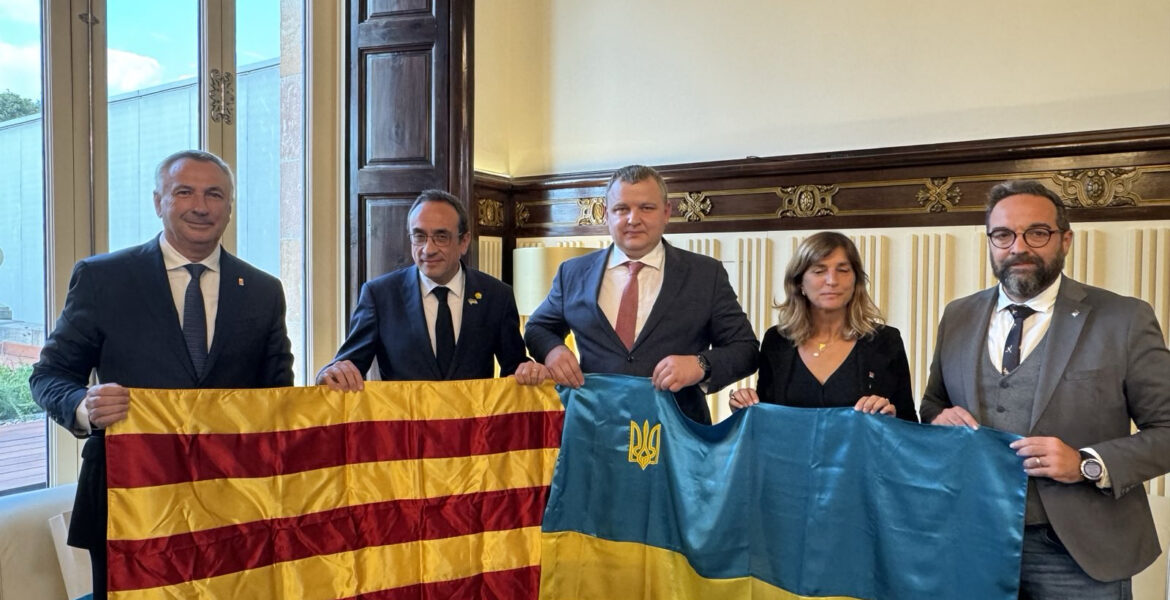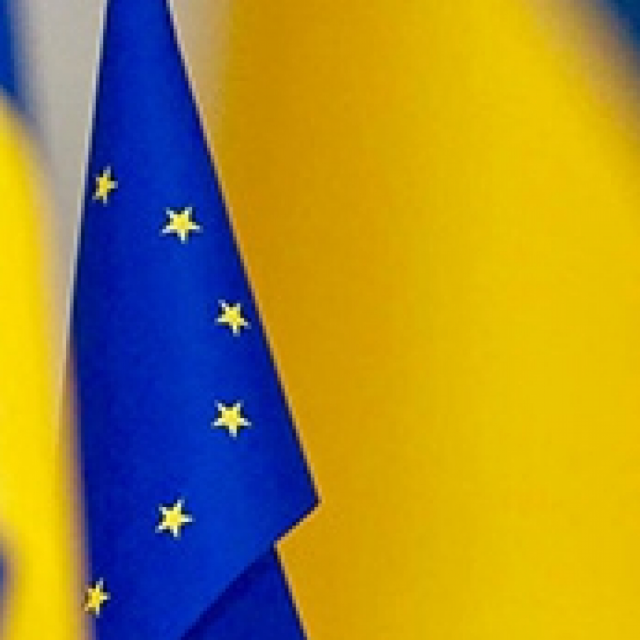The Assembly of the European Regions (AER), the Centre for International Studies (CEI) and Ágora Diplomática have organized a conference entitled “Interregional economic cooperation as a driving force for the reconstruction and economic growth of Ukraine”, with the presence of senior representatives of the Ukrainian regions of Dnipropetrovsk, Odesa, Sumy and the cities of Kharkiv and Kryvyi Rih. Manuel SZAPIRO, representative of the European Commission in Barcelona, Vorobyov Artem, Consul General of Ukraine in Barcelona, members of Dnipro city council, Kharkiv regional council, Odesa regional council and representatives of different Spanish companies and business associations all took part.
Member of the European Parliament Lukas MANDL, Mr. Igor TEREKHOV, the mayor of the Kharkiv city and Prof. Tetiana SHTAL, member of Kharkiv city council participated via streaming. The event aimed to foster meetings between the European business sector and Ukrainian regional authorities in order to explore opportunities for cooperation that actively contribute to the reconstruction of the country, consolidating strategic alliances that promote its development in the “post-conflict” stage. This is the first in a series of many planned events and the next one is scheduled to be held at the European Parliament in Brussels at the end of this year.
Mykola LUKASHUK, President of the Dnipropetrovsk Regional Council, claimed that “the recovery of Ukraine must be on the agendas of the European authorities from now on. Specifically, this cooperation must be directed mainly towards two key areas: the energy sector and the renovation and reconstruction of the country. On the other hand, initiatives such as those organised by the CEI, the AER and Ágora Diplomática are fundamental when it comes to twinning European regions such as Catalonia and Dnipropetrovsk, which share a strong tradition as industrial powers.”
Vadym SHKARIVSKYI, Vice-President of the Odesa Regional Council, has defended the strengths of his region: “The Odesa region is strategically key, as it has 7 seaports including the largest one in Ukraine, so it is vital to protect this commercial sector. In addition, it is a leader in grape production, with 75% of the total in the country, and a rich multicultural region, which is home to more than 130 different nationalities. It is important, beyond emergency aid, to take all this into account to join forces and support the reconstruction of Ukraine; and initiatives such as the one held today in Barcelona are the first essential step in the right direction towards full cooperation.”
Mr. Vadym LYSYI, First Deputy Chairman of Sumy Regional Council added: “with the largest border with the aggressor country, almost 600 km, Sumy region faces acts of international terrorism from Russia every day. But we stand firm because we are the border between the democratic, civil world and a totalitarian, aggressive state.”
Likewise, Manuel SZAPIRO, representative of the European Commission in Barcelona, has assured that “from the beginning of this unjust war of aggression by Russia, the EU has been and remains by Ukraine’s side. So far, a large part of the aid has covered immediate needs, but we have to prepare for the recovery and reconstruction of the country, which cannot wait until the end of the war. The aid fund in Ukraine, endowed with 50 billion euros, and the process of accession to the EU must go hand in hand to face reforms that benefit Ukrainian citizens, companies, regions and municipalities. This is a generational challenge that requires public and private investment and the effort of the whole society.”
For his part, Artem VOROBYOV, Consul General of Ukraine in Barcelona, has thanked the AER for the initiative and stressed “the need to work also in the reconstruction phase of the country with the involvement of the states of the regional powers and also the private sector.”
Albert CASTELLANOS, President of the European Assembly of Regions, pointed out that “supporting the reconstruction of Ukraine is not only a moral and political duty of the European regions, but also an opportunity for their business communities.”
Lukas MANDL, Member of the European Parliament emphasised the need for such initiatives and invited the participants of this event to continue the initiative within the European Parliament, so that representatives of the European Parliament, the European Commission, and other European institutions would be informed about this undertaking and provide their full support.
Igor TEREKHOV, the mayor of the Kharkiv city highlighted the problems and difficulties of life support for Kharkiv as the border city struggling under the conditions of martial law; he thanked European partners for their support and assistance. Tatyana SHTAL, member of the Kharkiv City Council and vice-rector on international affairs of the Kharkiv National Economic University added that Kharkiv is an educational hub of knowledge, innovation and business, and called for strengthening educational ties, which will become the basis for the sustainable development of Ukraine and Europe in the post-war period.
Finally, Joaquim LLIMONA, Director General of CEI, stressed that “Europe has a moral debt to Ukraine, because in this war not only is the territory being defended but also a system of values that are ours, those of Europe. In this sense, I consider that training is also part of reconstruction, so our centre, which has extensive diplomatic experience, can collaborate in this joint effort to promote this area of knowledge.”
The event also featured the presentation of the initiative “EU-Ukraine. Investments and reconstruction”, created with the aim of attracting investment to the country and promoting its reconstruction when the war ends.
In the final declaration the participants of this event agreed that interregional economic cooperation is one of the most important key factors for Ukraine’s economic development and, consequently, for its reconstruction. It is important to expand this initiative to other regions of the European Union, involving international organisations, the European Commission, and the European Parliament to strengthen it.




